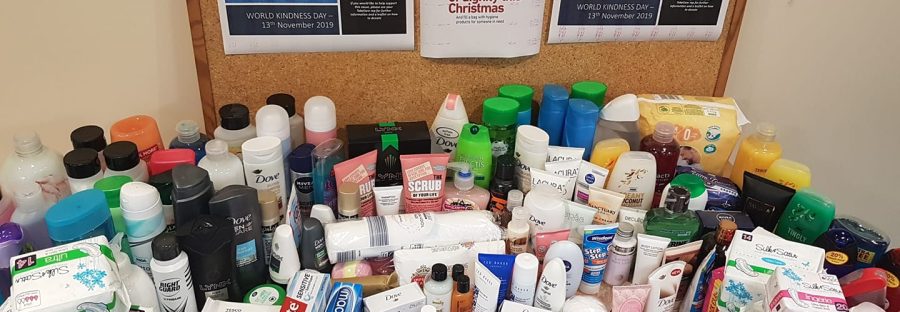A hygiene bank is the first of its kind in Manchester – and it’s run out of a spare room
- Manchester's first hygiene bank set up in the city
- Bank has seen a surge in use since the start of the pandemic
- 20% of people in the UK currently live poverty, according to The Social Metric Commission
A ‘hygiene bank’ run out of a spare room has been set up in Manchester for people who cannot afford essential washing and sanitary products.
The Hygiene Bank provides things such as shampoo and soap for people forced to choose between feeding themselves and buying personal hygiene products.
The bank was set up last year in attempt to combat rising hygiene poverty. It has seen its usage surge since the start of the coronavirus pandemic.
Charlotte Chilvers, head of the bank and whose Withington home the bank is run out of, wants to stop people having to choose between eating and keeping clean.
The bank works as a small ‘warehouse’ which stores items donated by the public, charities, and local businesses.
The items are subsequently distributed to the partnered organisations who then give them to their service users.
One of the bank’s partnered organisations, Wythenshawe Food Bank, say it has made a huge difference to peoples’ lives.

Scott Tillock, an employee at Wythenshawe Food Bank, finds that food and hygiene poverty often go hand in hand.
He said: “If you can’t put food on the table chances are you won’t be able to wash either.
“You go buy shampoo, conditioner, toothpaste and a toothbrush and you’re talking £6 or £7 easily which can be a lot.”
Scott was fully aware that the hygiene bank is run from a spare room.
He said: “it’s an unseen sort of element.
“There needs to be more funding and a better way for people to get additional support.”
Jennifer Anderson, destitution co-ordinator at Manchester Refugee Support Network, says they have also made use of the hygiene bank.
Jennifer points out that those on asylum are given a weekly allowance £35 which often does not stretch to afford basic hygiene products. She also knows of young girls who have had to miss school as they were unable to afford tampons.
She said: “I can’t tell you how important the hygiene bank has been in helping these people.”
She was not surprised to hear that the bank was run out of a spare room.
She said: “We always need more products. There needs to be more funding.”

Charlotte hopes to expand beyond her spare room in the future, but this will be determined by the availability of funding.
She said: “At the moment, I would say that reason I’m running the hygiene bank out of my spare room is due to lack of funding.
“We know that a few other hygiene banks across the country have had some success with this, so we’re hopeful that we’ll be able to secure funding for our project.”


